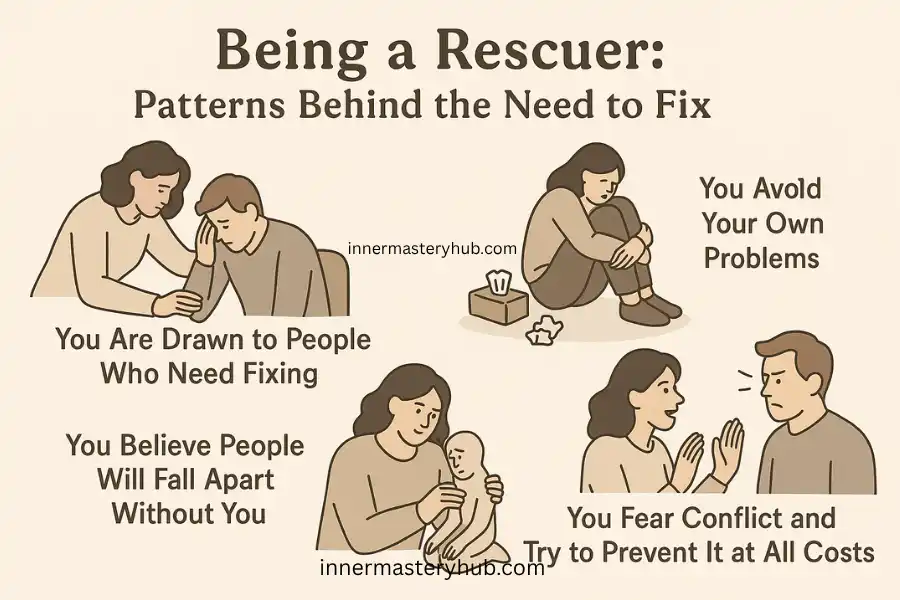Why People Make Fun of Others and How You Can Deal with It

Dealing with mockery and judgment is something that many of us face at some point in life. You might have been the target of jokes or hurtful comments, or perhaps you’ve witnessed someone else facing such treatment. It’s frustrating, painful, and sometimes leaves you questioning your self-worth.
If you’ve ever asked yourself, “Why do people make fun of others?” you’re not alone.
In this article, I will guide you through the reasons why people engage in mockery, its impact on us, and, more importantly, how you can address this issue healthily and effectively.
Why Do People Make Fun of Others?
It can be perplexing when people make fun of others. What drives them to say hurtful things or laugh at others’ expense? Understanding the underlying reasons behind this behavior is crucial for addressing it effectively.
Psychologists often point to several key reasons why people make fun of others. According to a study published, some individuals make fun of others to boost their own self-esteem. In many cases, mocking someone else helps the person doing the mocking feel better about themselves. They may feel insecure or inferior, and by belittling someone else, they temporarily elevate their sense of self-worth.
Another factor could be social bonding. People may make fun of others to fit in or be accepted by a group. Research from The Journal of Social Psychology suggests that humor often plays a key role in social interactions. When people make fun of others, others believe it strengthens their social ties or makes them appear more likable to others.
Additionally, some people make fun of others due to a lack of empathy or understanding. They may not realize how their words or actions affect the person being mocked. Sometimes, it’s simply a matter of thoughtlessness, or they may not be aware of the emotional impact their comments have on others.
The Negative Impact of Being Mocked
It’s easy to dismiss mockery as harmless, but in reality, it can have significant emotional and psychological effects. If you’ve ever been on the receiving end of mockery, you know how it feels to have your confidence shattered and your self-esteem diminished.
According to a study from the American Psychological Association, bullying, including making fun of others, can lead to long-term mental health issues, such as anxiety, depression, and even PTSD. When people make fun of others, especially in a public or repeated way, it can create feelings of isolation and loneliness.
The impact isn’t just psychological either. A National Institute of Mental Health report found that experiencing constant ridicule or mockery can affect physical health as well. People who are mocked often report higher stress levels, which can lead to issues such as poor sleep, headaches, and even cardiovascular problems.
Moreover, you can contribute to a toxic environment. In social settings, whether at school, work, or within families, when one person makes fun of another, it can perpetuate a cycle of negativity. This can lead to damaged relationships, decreased productivity, and an overall lack of trust between individuals.
How to Deal with People Who Make Fun of You
Now that we’ve addressed the problem and its underlying causes, the next step is to explore how to deal with mockery effectively. While you cannot control others’ actions, you can control how you respond to them. Let’s go over some practical solutions.
1. Build Your Self-Confidence
The first step in dealing with mockery is to build your self-confidence. When you’re confident in who you are, the words of others are less likely to hurt. In fact, a study from the University of Texas found that people with high self-esteem are more resilient to negative comments or teasing.
To build your self-confidence, start by focusing on your strengths. Everyone has something unique to offer. Identify your talents, skills, and qualities that you admire about yourself. Make a list of your accomplishments, and remind yourself of them regularly.
Additionally, surround yourself with positive people who lift you. These individuals will help reinforce your self-worth and serve as a buffer against negative influences.
2. Respond Calmly and Assertively
When someone makes fun of you, your immediate reaction might be to defend yourself, argue, or retaliate with insults. However, reacting in anger or frustration often worsens the situation. According to communication experts, the most effective response is to stay calm and assertive.
Instead of getting defensive or upset, try responding with a clear and calm statement. For example, you might say, “I don’t appreciate being made fun of,” or “That comment isn’t funny.” This communicates your feelings without escalating the situation.
In some cases, it’s better to ignore the person altogether. Sometimes, the best response is no response at all. People who make fun of others often want to provoke a reaction, and denying them that satisfaction can be an effective way to handle the situation.

3. Set Boundaries
If the mockery continues, setting boundaries is crucial. Let the person know that their behavior is not acceptable, and that you will not tolerate being made fun of. Setting clear boundaries can help prevent further incidents.
For example, you can say, “If you continue to make fun of me, I will need to distance myself from you.” Ensure you don’t exceed these boundaries if they are crossed. This shows that you value yourself and your well-being.
4. Ask for Support from Others
If the mockery becomes overwhelming, it’s important to seek support from friends, family, or even a professional. Discussing the situation with someone who cares can provide a sense of relief and help you gain a clearer perspective. A therapist can help you work through any emotional distress caused by mockery and build strategies for coping with negative interactions.
Support groups can also be a great resource. Connecting with others who have experienced similar situations can remind you that you are not alone and offer valuable insights into similar issues.
5. Educate Others About the Harm of Mockery
If you’re in a position to do so, educating others about the impact of their behavior can help reduce the frequency of mockery. Often, people make fun of others without fully understanding the harm they’re causing. By calmly explaining how their words affect you, you may be able to help them see the situation from a different perspective.
For example, you could say, “When you make fun of me, it makes me feel belittled and hurt. I would appreciate it if we could be more respectful towards each other.” This approach encourages empathy and could lead to a more understanding and supportive dynamic.
The Importance of Self-Worth
At the end of the day, dealing with mockery starts with recognizing your own worth. While the opinions of others can sting, they don’t define who you are. Building resilience, confidence, and emotional strength is key to navigating these situations.
Incorporate these strategies into your daily life. Whether it’s practicing self-affirmation, setting boundaries, or seeking support, you have the power to protect yourself from the negative impact of mockery. Remember, it’s not about changing others; it’s about taking control of how you respond.
Overcoming the Struggles of Mockery
Mockery is a form of bullying that can have long-lasting effects on a person’s emotional and mental health. However, it’s essential to remember that individuals who mock others often do so because of their own insecurities or a lack of understanding. By building self-confidence, responding assertively, setting boundaries, seeking support, and educating others, you can take control of your emotional well-being and minimize the impact of mockery.
The journey to overcoming mockery may not always be easy, but with the right strategies, you can learn to navigate this challenge with grace and resilience. Start applying Today’s solutions, and take the first step towards reclaiming your self-worth.
Frequently Asked Questions (FAQs) on Why Do People Make Fun of Others
Why do people enjoy making fun of others?
Individuals often mock others due to insecurities, jealousy, or a lack of empathy. Mockery can serve as a defense mechanism to mask personal vulnerabilities. Understanding these motivations can help address the behavior effectively.
Is making fun of others a form of bullying?
Yes, mockery can be a form of bullying, especially when it’s repetitive or intended to harm. It can lead to emotional distress and long-term psychological effects on the victim.
How does making fun of others affect mental health?
Being mocked can lead to feelings of inadequacy, anxiety, and depression. Prolonged exposure may lead to decreased self-esteem and increased stress levels.
Is making fun of others harmless?
While some may perceive light teasing as harmless, it can still cause harm to the recipient. The intent and context matter; what seems playful to one person may be hurtful to another.
Why do some people enjoy making fun of others?
Enjoyment of mockery can stem from a desire to feel superior or to conform to a group. Psychological theories suggest that individuals may mock others to boost their own self-esteem.
How can one respond to being mocked?
Responding assertively and calmly can deter further mockery. Setting clear boundaries and seeking support from trusted individuals are effective strategies for managing stress.
Is making fun of others more prevalent online?
Yes, the anonymity provided by online platforms can lead to increased instances of mockery and cyberbullying. The online disinhibition effect contributes to this behavior.
Can making fun of others be unlearned?
Yes, with awareness and effort, individuals can unlearn the habit of mocking others. Promoting empathy and understanding can help change such behaviors.
Does making fun of others target certain groups?
Yes, individuals from marginalized groups, including those with different appearances, backgrounds, or opinions, are often more susceptible to mockery and bullying.
How can people reduce making fun of others?
Educating individuals about the impact of mockery, promoting empathy, and fostering inclusive environments can significantly reduce instances of mockery in society.






